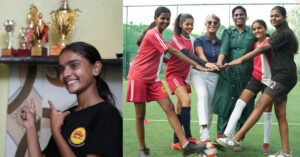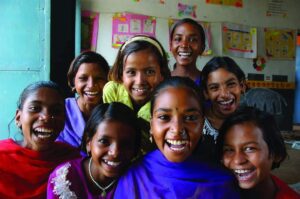Here’s What Shattering of Menstrual Taboos & Access to Hygiene Did to an Ordinary Village Girl
A lot of the girls could not even afford fresh cloth every month, and had to use the same piece of cloth for months on end.
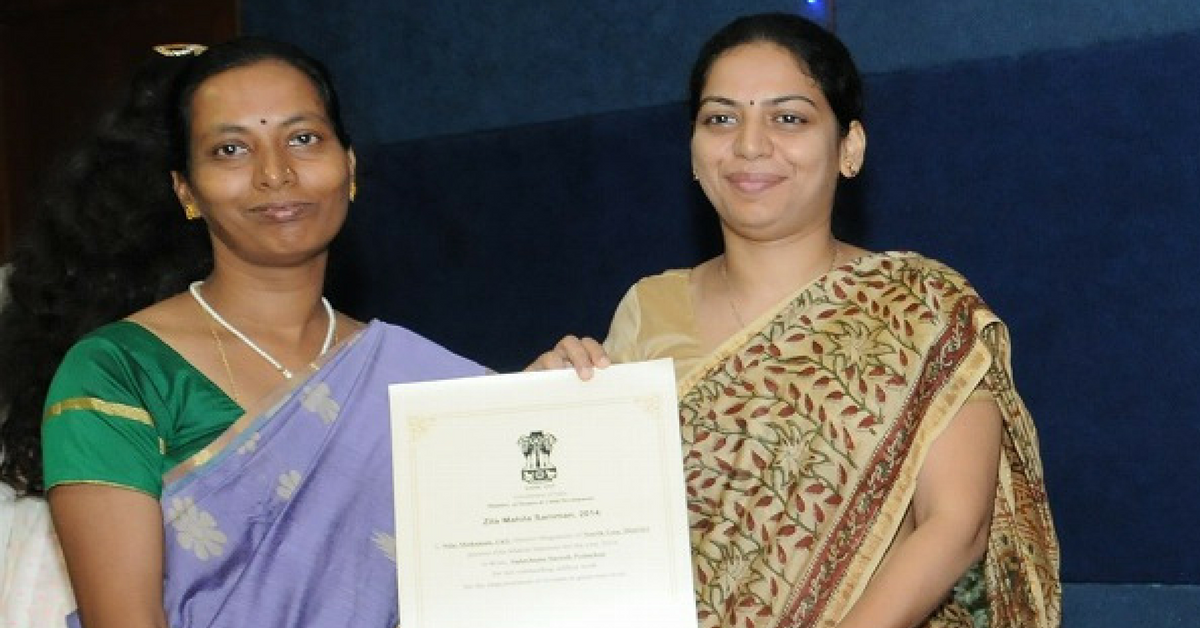
Sulochana Pednekar is an award winning social worker, who has changed the lives of more than 2000 school girls.
Born in a remote village called Siolim in Goa, she was raised by a single mother, who worked in a bakery to take care of the small family. She tried to help her mother in every way possible. While finances were met by her mom, she lived in a joint family.
The hardships she faced made her self-reliant. However, that sense of freedom was lost once she hit puberty.
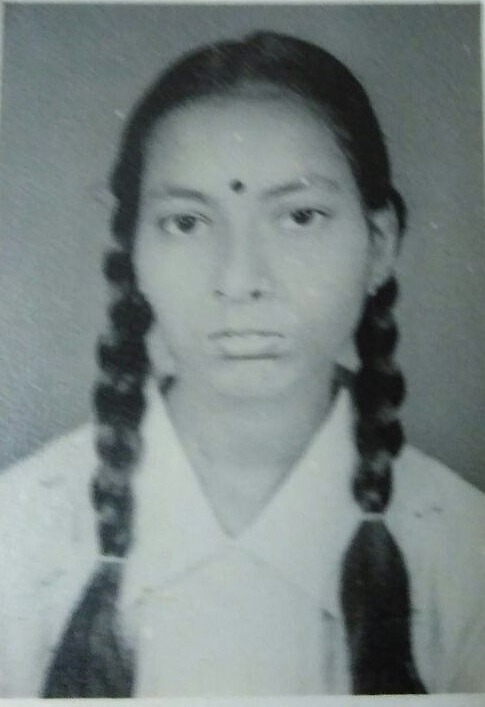
“I was not allowed to touch any utensils, and hence was always dependant on someone even for a drink of water. If I was thirsty in the middle of the night, I had to wake someone up to get me water,” says Sulochana.
Sulochana explains how she felt like an untouchable, especially when she was asked to sit and sleep separately.
“It was terrible. Though my mother would allow me to bathe secretly, my grandmother always kept an eye on us to ensure we follow traditions,” she says.
In collaboration with Aakar Innovations, The Better India is setting up a sanitary pad manufacturing unit in Ajmer, Rajasthan, that will not only produce eco-friendly or biodegradable sanitary pads, but will also employ women from rural communities around the area.
Contribute for the campaign here.
Unable to view the above button? Click here
Slowly, Sulochana found out that this was the story of every girl in the village.
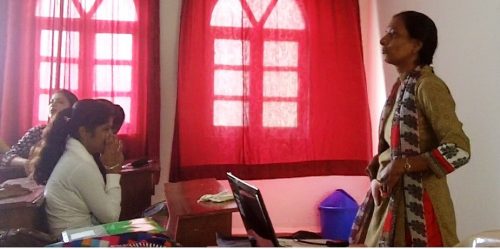
In fact , she considers herself lucky enough to get a space where she could dry her cloth pads in the open, because there were many who had to dry it in the dark, which meant that the cloth did not dry sufficiently, inviting infections and diseases. A lot of the girls could not even afford fresh cloth every month, and had to use the same piece of cloth for months on end.
“Even though everyone was going through the same ordeal, nobody would speak about it openly. We were not even allowed to say we had our periods. Girls would use code words like, ‘It’s my happy birthday’ or ‘A crow has touched me’, ” she laughs.
Times were tough. She would receive Rs.60 as scholarship to cover book expenses which was very less but it helped in meeting her school expenses.. Sulochana would walk 2 km to attend the village school. She was a brilliant student, who wanted to get a higher education. But mounting expenses made Sulochana lose hope of studying any further. But luck favoured her when a few foreign delegates came to visit her family, they were so impressed with Sulochana’s English that they offered her a scholarship.
Sulochana studied economics with the help of this scholarship, and in college was introduced to sanitary napkins, which felt like a life-saver during long journeys and field visits.
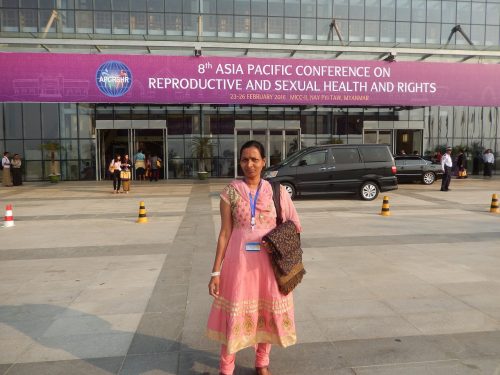
But she was not happy with the way the napkins were disposed, which prompted her to research organic sanitary napkins, and this lead her to an NGO that was working on a similar project. Once she got involved, and better informed about the subject, she took it upon herself to spread awareness on menstrual hygiene.
In collaboration with Aakar Innovations, The Better India is setting up a sanitary pad manufacturing unit in Ajmer, Rajasthan, that will not only produce eco-friendly or biodegradable sanitary pads, but will also employ women from rural communities around the area.
Contribute for the campaign here.
Unable to view the above button? Click here
After her graduation, she started working with an NGO called ‘Sangath’ in Goa, which dealt with women’s issues, especially around the mental health of rural women. Sulochana has travelled around Goa, conducting surveys about the mental health of rural women. This also helped her get a Masters in Population studies from the International Institute of Population Sciences, Mumbai.
“Our curriculum has just one chapter on reproductive organs which is taught in class 9, whereas these days girls hit puberty much earlier. It is very important for them to know about their own body to take care of it. In fact it is their right to have this information,” says Sulochana.
Sulochana has started a drive called ‘Pad for Pad’ where she goes to schools in remote areas of Goa and holds menstrual awareness campaigns.
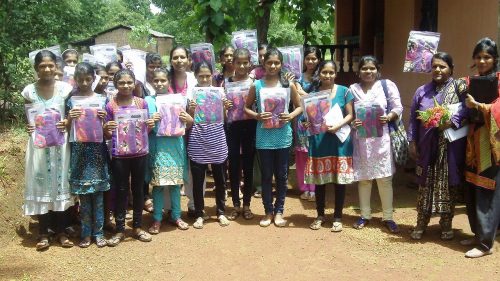
After the campaign, most of the girls know about the benefits of using eco-friendly sanitary napkins. Those who want to use them, are given the napkins free of cost.
Due to her work, Sulochana was one among the four girls to be selected for a video project working around women’s issues.
“I had not held a camera before this project. But they trained me so well, and thats how learned film making,” she laughs.
Today Sulochana is a community correspondent at Video Volunteers, which equips marginalized Indian people with skills in video journalism and advocacy, helping them expose under-reported stories from their communities, and take action to right the wrongs of poverty, injustice and inequality.

She uses her role as a Community Correspondent to bridge the gap between the grassroots and civil society, and spread awareness on key issues such as health, sanitation, and government schemes for women and children etc. A major part of her work is on health and environment, especially women’s health and hygiene.
Sulochana who works as an assistant professor at department of women’s studies, Goa University is getting her PHD in Education, Gender sanitation and public policy in India
She has been awarded the Zilla Mahila Samman 2014 for North Goa district from Ministry of Women and Child Development, Govt. of India.
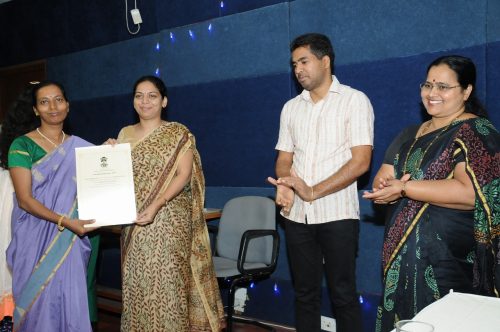
You can contact Sulochana at [email protected]
In collaboration with Aakar Innovations, The Better India is setting up a sanitary pad manufacturing unit in Ajmer, Rajasthan, that will not only produce eco-friendly or biodegradable sanitary pads, but will also employ women from rural communities around the area.
Contribute for the campaign here.
Unable to view the above button? Click here
Like this story? Or have something to share? Write to us: [email protected], or connect with us on Facebook and Twitter.
NEW: Click here to get positive news on WhatsApp!
This story made me
-
97
-
121
-
89
-
167
Tell Us More
We bring stories straight from the heart of India, to inspire millions and create a wave of impact. Our positive movement is growing bigger everyday, and we would love for you to join it.
Please contribute whatever you can, every little penny helps our team in bringing you more stories that support dreams and spread hope.







